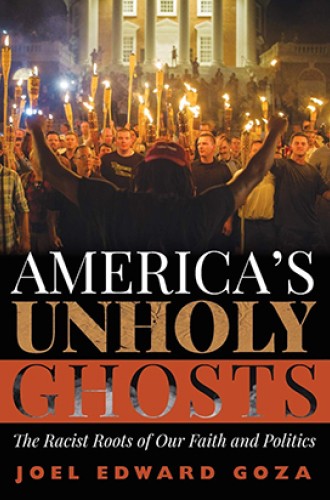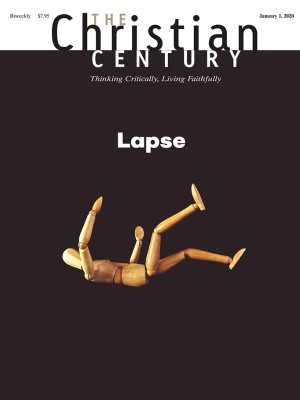How did American racism get to this point?
Joel Goza explores America’s addiction to racism and racialized poverty.
Joel Goza’s debut book contributes significantly to the searching examination of American and Christian racism that is developing in our apocalyptic time.
Goza is a young white pastor from an evangelical background (Wheaton College and more) who has chosen to settle with his family in Houston’s black- and Latino-dominated, deeply impoverished Fifth Ward. There he has had the opportunity to observe white America’s historical and daily decision simply to throw away many black and brown people’s lives as if they don’t matter.
He is focused not just on America’s “addiction” to racism but also its addiction to economic inequality tied to race; that is, “racialized poverty.” Goza’s book emerges from a fully disillusioned quest to understand how it is that our country got to this evil place. He urgently seeks to discover what went wrong in both politics and religion.
Read our latest issue or browse back issues.
In this endeavor Goza reflects our country’s current moment, in which the enduring diabolical power of white American racism has been unveiled and in which many (mainly white) people’s long-maintained illusions about American virtue have come crashing to the ground. Part of this particular moment is the emergence of an unflinching resistance, especially on the part of those on the underside of President Trump’s project #MakeAmericaGreatAgain. Among the transformed resisters is a small number of white ex-evangelicals who, looking around them at their coreligionists—Trump’s most loyal base—have moved to a place of appalled, repentant renunciation.
The current moment is also creating a dramatic change in what 50 years ago was called the Christian “race relations” conversation and 20 years ago was called the “racial reconciliation” conversation. Today it is the “white supremacism” conversation. The time in which black and brown Christian people went soft on white Christian people in order not to bruise our feelings, too quickly puncture our illusions about ourselves, or make prayer breakfast conversations uncomfortable—those days are so over. And some small number of white people are ready for it. Goza, for one, wants the truth straight.
Goza undertakes his quest primarily through careful reading in the works of Thomas Hobbes, John Locke, and Adam Smith, which he contrasts with the claims of what he calls the “Prophetic Black Church.” Goza does not come to the study with any particular academic background in Enlightenment philosophy. He just reads everything he can get his hands on from this trinity of the founders of Western political philosophy and reports what they say. His overall conclusion is that racism was embedded in their philosophies and that this racism was transmitted in full into America’s founding practices and principles, as well as into the very marrow of white American religion.
Goza argues that Hobbes (1588–1679) “provided a modern imagination formed by the slave master’s myth.” Locke (1632–1704) “provided a tangible way for government and religion to partner in institutionalizing that imagination in democratic and religiously ‘tolerant’ societies.” Smith (1723–1790) “articulated a morality of indifference to the gross inequalities our institutions fostered, ingraining the slave master’s myth into society’s soul.”
Together, Goza claims, this unholy trinity laid the foundations for Americans to believe that government is about protecting property rights rather than advancing the common good, that economics is a morality-free zone, that race-based inequity is fully acceptable because of the worthlessness of nonwhite lives, and that justice is about retribution for crime rather than a prophetic vision of dignity, equality, fairness, or basic fellow humanity.
Goza also argues that these philosophers, in the often overlooked religious parts of their writings, helped distort American Christianity. They taught Christians to believe that intimacy with God does not require intimacy with broken and abused people, that true religion is about “soul salvation,” and that indifference to injustice is irrelevant to a personal relationship with God.
I am not convinced that these philosophers are the primary source of these distortions of Christianity. But they may well have contributed to them. Those best positioned to analyze the accuracy of Goza’s treatment of Hobbes, Locke, and Smith are scholars of Enlightenment political philosophy. The quotes he cites, however, are clearly damning.
Overall, Goza’s archaeology of American foundations reinforces the most radical analysis of the sickness that besets us—that it goes to our very roots. American racism and racialized poverty are not an unfortunate detour from who we really are. This is who we really are.






